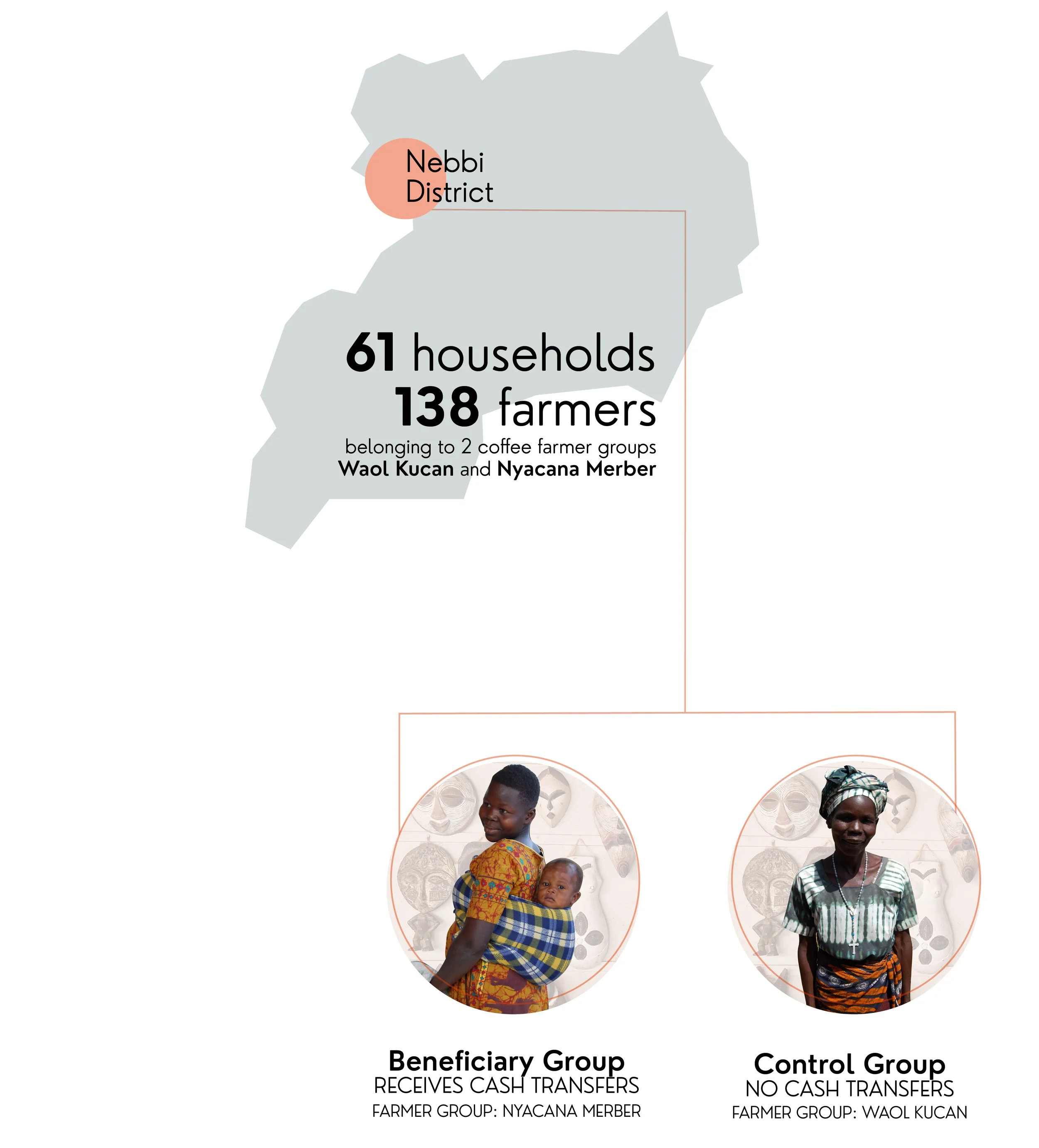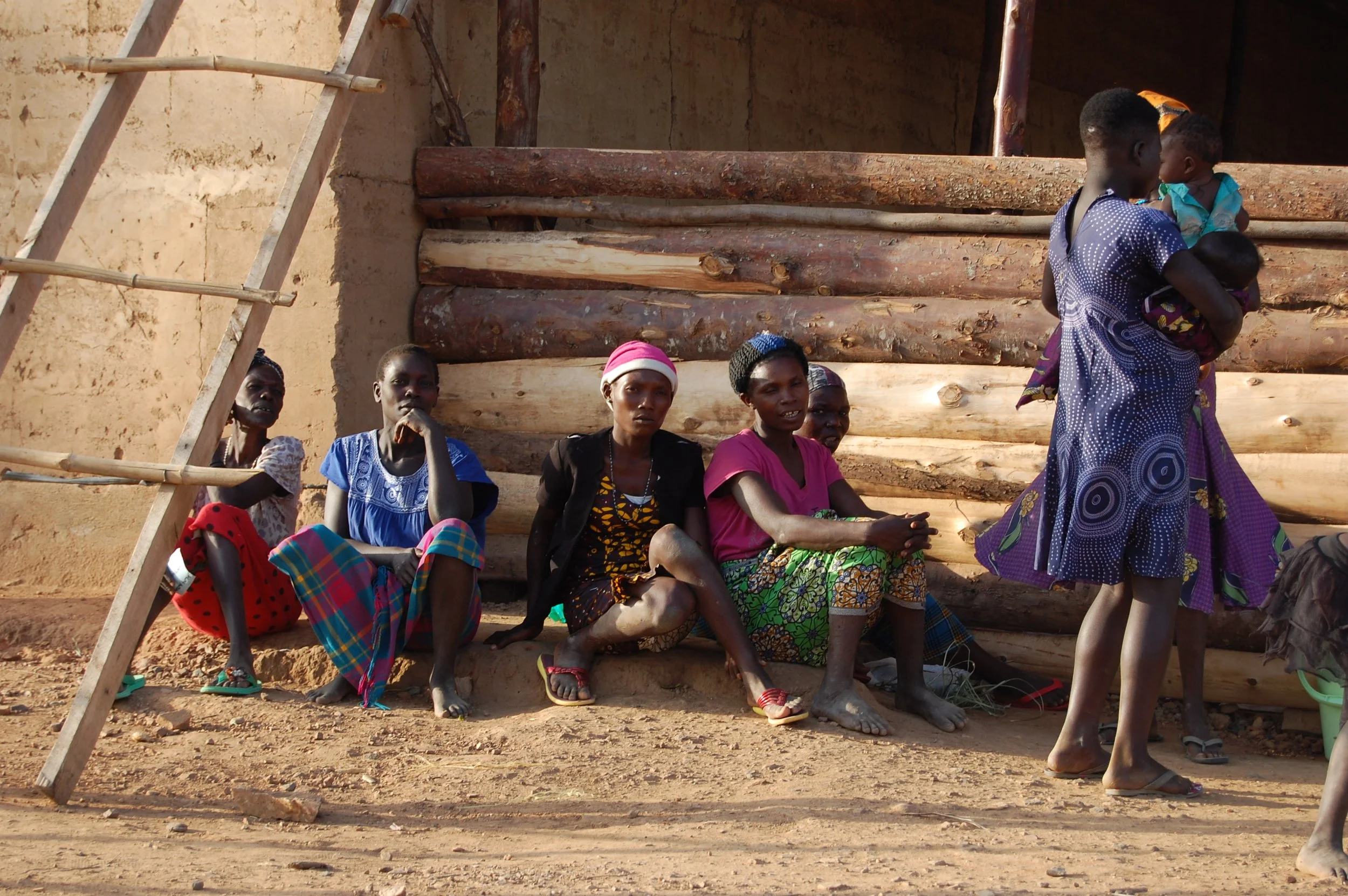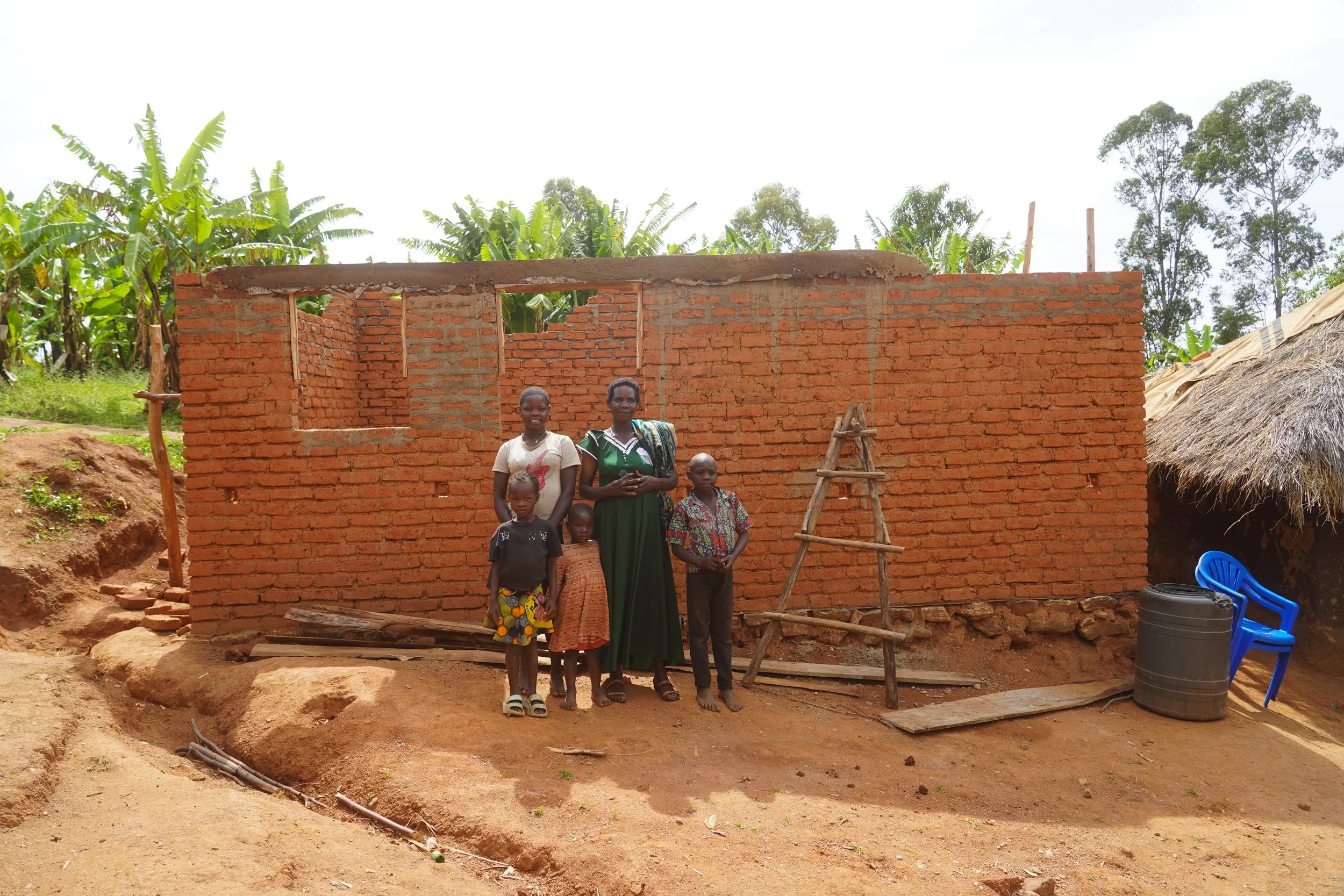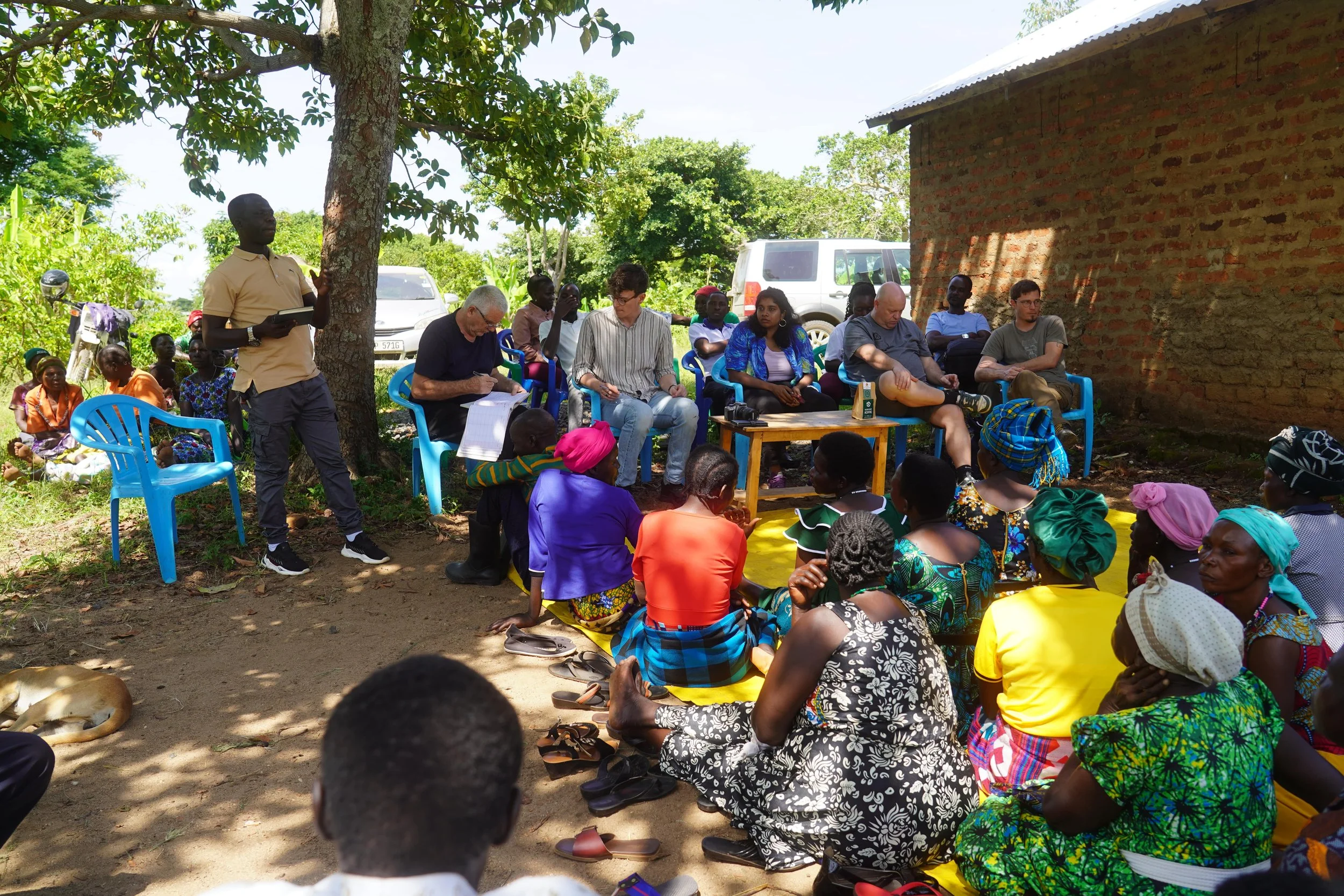you make them lazy. it prevents creativity.
it kills entrepreneurship. you’re playing for god.
Today’s specialty coffee world has a lot of rigid ideas about the right way to be doing good to the poor. Anything outside this box, puts you at risk of being scolded, laughed at, or looked down upon. The proven concept of basic income as an intervention to reduce poverty is no exception. In our experience, we notice how quickly the room gets divided when we want to talk about basic income openly. The sharpest of the tongues advise us - often unsolicited - not to play God while our allies want to know how to help and contribute. Many of us from wealthier countries conveniently choose to forget that we already do enjoy basic income and that it is inbuilt in many of our societies. Healthcare systems, pension funds, unemployment benefits or just education - it’s there everywhere. We did not need to start from scratch. We could simply waltz in and enjoy the fruits.
This isn’t true for those in less wealthier countries. They are forced to fight for their basic amenities. It is the shortcoming of their government, that intentionally or unintentionally does not deliver these services at an affordable price. It makes it impossible for the poor to freely educate, forget to worry about healthcare costs or retire when they please. It puts them under a lot of pressure. The day to day worries catch up to them. Limited employment opportunities and a dwindling income at a household level makes the entire situation very tense. This also holds good for many smallholder coffee farmers especially in rural areas. Our offer to find a market that will pay more for better qualities does not always land. It is because these farmers are in survival mode. Growing coffee is not a passionate career choice, but the only way to make ends meet. The only way to get a little bit of hard cash. Meanwhile the coffee farmers that are passionate and do produce a high quality product can get snowed under in a situation like this. Often cooperatives combine coffees from different places in the region to reach the contract volume blending the different qualities into one. This might kill the motivation to produce high quality coffee all together.
What will happen if we can give these farmers a breather by providing them with basic income for limited time? Not unlimited amounts, but for the basic needs. Give them a chance to think about their future, wonder if they want to actually want to be coffee farmers. Some farmers might not want it while others might want it even more. Look for the motivation to educate themselves, invest in their farms and make better quality. This is our goal with the basic income project: foster coffee farmers to become agro-entrepreneurs by choice. We proactively invest in the welfare of these people and the quality of product will also get better.From here, we create are in an upward cycle: those who have a basic grip on quality and want to learn more, can go and improve it even further, leading to more control, better prices and better long term partnerships. It’s here where the connections between roasters and these coffee producers come into play, and magic will happen.
not a test balloon,
but a scientifically proven approach
The idea of providing basic income is privy to harsh criticisms such as giving money to poor never works, it makes them dependent and complacent. These concerns might hold true for few of them yet overwhelming evidence suggests that basic income changed lives for good. In our case, farmers can use this opportunity to focus on professionalization- hiring more labour, producing better quality. It allows them to be the architect of their own lives.
Evidence also suggests that temporary unconditional cash transfers for a definitive period of time boosts economic development and improves livelihoods. Basic income can be a breath of fresh air for those who have never had the chance to thrive. Children can go to school and they can have three meals a day.
As good middleman, we at This Side Up are consistently open towards improving our social, economical and environmental agenda at origins. Nothing is a taboo. Not even basic income. We care about the personal welfare of our farmers. While paying higher prices is the most obvious thing to do, it does not guarantee they will have a decent livelihood. The impact of the high prices is an incentive provided you have the motivation, knowledge, land and yield. For most smallholder coffee farmers with land holding between 0.5-2 hectares with low yielding coffee trees and poor farm management, waltzing out of poverty seems far fetched.
As a social enterprise our financial means are there to make impact. The seed for our collaboration with Belgian NGO Eight is a result of many in-depth conversations between Maarten and Steven. Eight’s work and their proven success in the Democratic Republic of Congo and Uganda paved way for our partnership. Having an experienced field team fully operational in Uganda, it felt like the obvious step to expand this to our Ugandan export partners in Nebbi: Zombo Coffee Partners.
At This Side Up, we take pride in being a social enterprise focused on selling coffee while prioritizing the welfare of our farmers. Each year, we encounter challenges with coffee quality, as the market is unforgiving when it comes to inconsistencies in the cup. We recognize that poor quality doesn’t occur in isolation—it stems from various factors such as lack of technical knowledge, financial limitations, and motivation to produce coffee. Unconditional Cash Transfers can break a trend, and provide alternatives for the unmotivated producers, and opportunities to grow for those that want to: by providing headspace.
Motivated farmers who want to produce good quality coffee but don’t have the headspace for it, because they’re constantly in survival mode. Supporting these farmers with a basic income helps them shift their focus towards professionalization. Unconditional Cash Transfers are a proven concept, but this case is unique in the sense that they’re not connected to a single village, but to a demographic group, being coffee producers. Via This Side Up’s partners of Zombo Coffee Partners, we start via the coffee microstation of Ndhew, and the townships and village that provide coffee to it. The first is the Nyacana Merber community.
Eight, a Belgian Non profit organization that has been in a pursuit of providing basic income without conditions. They have done projects in the Democratic Republic of Congo and Uganda. They follow a scientifically proven evidence based approach backed up by independent research conduct by University of Antwerp and IPIS. Their goal is giving people the freedom of choice. Through unconditional cash transfers they have been able to make a difference in quality of life, health, education and entrepreneurship for 3928 people in 11 villages until now. The documentary Crazy Money shows one of their former projects.
Income per adult, child is calculated and divided into a monthly sum. In the Nycana Merber community, 76 adults receive €16 per month, and 116 children receive €8 per month. For two years, these families receive their monthly installment with no conditions. It is given directly to them through mobile money. During this time, a team from Eight also conducts a baseline, midline and endline survey that tracks the progress of this intervention. The progress will be tracked by comparing them with a control group that doesn’t receive UCTs.
Read more about the report from midline study for project happening in Kasese district in Western Uganda.
From the 27th of July 2024 until the 27th of July 2026, Eight World will work with 138 farmers from 61 households in the Nebbi district belonging to 2 coffee farmer groups - Waol Kucan and Nyacana Merber. Nyacana Merber farmer group is part of the Ndhew microstation selling their cherries to Zombo coffee partners. Woal Kucan is the control group without the cash transfers compared against Nycana Merber which receives the cash transfer for the next 2 years. Eight world conducted a baseline survey with these 138 respondents and the results were interesting. We have reported the most important results which are relevant to present and future of coffee farming. You are welcome to read the baseline report prepared by Eight World here (Add a link to BASELINE STUDY WHEN READY). Over the next two years Eight World will also conduct a mid-line and an end-line to document the results of this project. Meanwhile you can follow the stories of these families here.
Through the UCT, farmers can take a break from survival model and enjoy the agency of choices.
What do they want to pursue in life? How do they feel about their present choices?
What are their dreams for themselves and their family?
Do they still want to be a coffee farmer?
QUANTITATIVELY
These are the results of the baseline study done in 2024 at Nyacana Merber and Waol Kucan. The midline study has been completed in August 2025 and the results are integrated.
-
Coffee farming participation increased in both groups, but the treated group showed a more substantial rise (from 63% in base line to 85% in midline ).
-
Baseline : 1 acre
Midline : It is still 1 acre but a positive trend was observed: the percentage of households owning 5 or more acres showed a continuous increase, suggesting that members were actively expanding their landholdings. This trend is further supported by a significant decrease in households with less than 1 acre of land, dropping from 10% at baseline to just 3% at midline.
-
Baseline : Bananas, beans
Midline : A new development in the Nyacana Merber group is the emergence of groundnut cultivation.
The number of farmers engaging in this practice, especially those growing bananas and beans, is higher in the Nyacana Merber group than in Waol Kucan at the midline survey -
Baseline 50-100 KG of coffee per person per season
Midline : >500 KG per person last season
-
Baseline : 50% of Nyacana Merber earn between UGX100,000 (€ 25.68) AND UGX 350,000 (€ 89.87)
Midline : At the midline survey, farmers in both groups reported a shift towards higher earnings, with more individuals earning over UGX 200,000 from a good coffee season This is also reflected in a slightly higher proportion of Nyacana Merber farmers earning between UGX 210,000 and UGX 500,000 (€50 - €125) -
Baseline : 91% of Nyacana Merber sold it between UGX 1000-1500 (€ 0.26 -€ 0.39) per KG
Not all of them always sell to the washing station. These prices change depending on their buyer. Eight could not access the record on the pricing farmers received, this information is based on what farmers told them they got during the study.
Midline : -
Baseline : 51% from Nyacana Merber from both groups earn between UGX 10,000 ( € 2.56 ) and UGX 50,000(€ 12.84) and tend to spend less than UGX10,000 (€ 2.56)on food per week.
Midline : In the Nyacana Merber group, there was a substantial rise in monthly income. For instance, the percentage of households earning UGX260,000–UGX400,000 (€50 - €100) increased from just 1% at baseline to 28% at midline. Income Floor: By midline, no one in the Nyacana Merber group reported a monthly income below UGX50,000 (€12) , with many now earning over UGX101,000 (€25) per month -
Baseline and Midline : 98% of farmers from both groups were affected by climate change especially drought or heat both in baseline and midline said the same
-
Waol Kucan experienced a more modest 13% rise, from 69%(Baseline) to 82% (Midline) . This indicates a more pronounced expansion of coffee farming within the treated community.
-
Baseline : With less than <1 acre for coffee farming
Midline : By midline, this shifted, with the largest group of households (27%) now owning 3 acres. However, the percentage of households with 5 or more acres declined during this same period.
-
Between baseline and midline, Waol Kucan had an increase from 29 to 46 farmers intercropping with Banana and beans
-
Baseline : 50-100 KG of coffee per person per season
-
Baseline : 48% Waol Kucan earn UGX100,000 (€ 25.68) AND UGX 350,000 (€ 89.87) from coffee for a good season
Midline : The largest portion of farmers in the Waol Kucan group (27%) earned between UGX 210,000 (€ 50) and UGX 350,000 (€ 80)
-
Baseline : 79% of Waol Kucan sold it between UGX 1000- 1500 (€ 0.26 -€ 0.39) per KG
Not all of them always sell to the washing station. These prices change depending on their buyer. Eight could not access the record on the pricing farmers received, this information is based on what farmers told them they got during the study.
-
Baseline : 64% from Waol Kucan earn between UGX 10,000 ( € 2.56 ) and UGX 50,000(€ 12.84) and tend to spend less than UGX10,000 (€ 2.56)on food per week.
Midline : Monthly income levels in the Waol Kucan group remained largely unchanged
-
Baseline and Midline : 98% of farmers from both groups were affected by climate change especially drought or heat both baseline and midline
QUALITATIVELY
These are the results of the baseline study done in 2024 at Nyacana Merber and Waol Kucan. he midline study has been completed in August 2025 and the results are integrated.
-
Baseline : 67% of Nycana Merber expressed interest in pursuing alternative income sources if they had the option to switch from coffee.
Midline : The interest among farmers in pursuing alternative income sources has declined in both groups since the baseline survey, with a more pronounced reduction in Nyacana Merber. This suggests that the Unconditional Cash Transfers (UCTs) may have dissolved the desire for alternative ventures, as farmers redirected their entrepreneurial focus and investments toward coffee production. -
Baseline :46% of Nycana Merber rated their quality of nutrition to be average
Midline : The percentage of farmers rating their nutrition as "good" rose sharply from 15% at baseline to 63% at midline, a difference of 48 percentage points. This indicates that the cash transfers enabled households to access and consume a more nutritious diet.
-
Baseline : 38% of Nycana Merber rated it as poor
Midline : The Nyacana Merber group experienced a dramatic improvement in housing status, with the percentage of farmers rating their housing as "poor" dropping sharply from 39% to just 9%. Correspondingly, the proportion of those rating their housing as "good" rose from 16% to 37%, and an additional 7% rated their status as "very good."
-
Baseline : 32% of Nycana Merber felt it was average
Midline : A small but notable increase was seen in the number of Nyacana Merber parents who feel their children are accessing a good quality education
-
Baseline :56% of Nycana Merber agreed they had access to health care
Midline : The Nyacana Merber group had made significant strides in their access to medical care. The percentage of farmers with poor access declined from 21% to just 12%, while those with good access rose sharply from 18% to 49%. Additionally, 3% of farmers in this group reported having "very good" access, a rating that was absent at baseline. -
Base line : 43% of the farmers expressed dissatisfaction with their lives
Midline : A dramatic reversal had occurred within the Nyacana Merber group. The highest percentages of satisfied farmers were recorded in this group, with a few even reporting to be extremely satisfied
-
Baseline : 53% of Nyacana Merber rated their welll being as average or poor
Midline : The overall quality of life in Nyacana Merber had greatly improved, with the majority of respondents rating their well-being as "good" or "very good
-
Baseline 72% of Waol Kucan expressed interest in pursuing alternative income sources if they had the option to switch from coffee.
Midline : The interest among farmers in pursuing alternative income sources has declined in both groups
-
Base line : 56% of Waol Kucan rated their quality of nutrition to be average
Midline : Waol Kucan group saw a decline in housing conditions. Ratings of "average" and "good" decreased from 42% to 32% and 23% to 19%, respectively. Furthermore, the number of farmers rating their housing as "very poor" increased from 8% at baseline to 26% at midline
-
Base line :46% of Waol Kucan rated their housing status as average
Mid line :Waol Kucan group saw a decline in housing conditions. Ratings of "average" and "good" decreased from 42% to 32% and 23% to 19%, respectively. Furthermore, the number of farmers rating their housing as "very poor" increased from 8% at baseline to 26% at midline.
-
Baseline : 38% of Waol Kucan felt it was average
Midline : The percentage of parents in Waol Kucan who shared this positive view dropped dramatically from 81% at baseline to 46% at midline. This decline in satisfaction highlights a growing concern within the control group about the quality of their children's education, which may be influenced by the financial struggles.
-
Baseline : 57% of Waol Kucan agreed they had access to health care
Midline : No significant change -
Baseline : 43% of the farmers expressed dissatisfaction with their lives
Midline : No significant change
-
Baseline : 57% of Waol Kucan rated their well being as average or poor
Midline : Waol Kucan group, where many farmers continue to rate their overall well-being as "poor" or "average," indicating a stagnation or decline in their quality of life
Educate and challenge yourself
Empathy is difficult when you are far away from certain realities. We understand. Thanks to the internet, we can educate ourselves enough to develop this empathy and compassion. Our dearest friend Steven Janssens has been able to vividly capture these realities through his documentary Crazy Money. It is confronting, educational and relevant. You can rent it on Vimeo for €2. His film is beyond the romanization of basic income. It shakes, dismantles hierarchies, privileges and exposes the unfairness in the local Ugandan society. The process empowers, angers, triggers, invokes creativity, helps people manifest their dreams but on the other hand, incites suspicion - and even violence. It is by no means a smooth process, but in our view one that was worth investing in as a company, simply because we intuitively know it’s the right way to go for the world to pass on privileges we have enjoyed ourselves, in one way, or another.
How can i get involved?
Would you like to support a group of farmers by providing them with basic income? It costs €8 for a child, € 32 for an adult and two children, € 64 for two adults and four children to cover their basic needs. You can donate one time or monthly, in a way that suits you or your company into Eight’s bank account.
-
ACCOUNT NAME :Eight vzw
IBAN: BE53 5230 8076 9753
SWIFT/BIC: TRIOBEBB






















